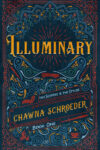Christ Is Shown and Told In Peretti’s ‘The Visitation’
Most people know Frank Peretti for writing the blockbuster book This Present Darkness in the early ‘80s. Evangelicals loved Darkness and its sequel for their thrilling portrayals of angels vs. demons, Christians vs. Satanists, and plenty of creative spiritual battles. But a lot of doctrine-minded Christians, loving and otherwise, also had concerns about what people were doing with Peretti’s stories. So did Peretti himself, according to a 1997 interview with World’s Gene Veith.
In prayer groups across the country, people were binding demons named after specific sins (Envy, Despair, Lust) and calling on angels to beat down devils in charge of particular cities and nations. “That really alarmed me,” Mr. Peretti told WORLD. People were taking his fiction literally, as if it were fact. [. . . H]e stressed that his books were symbolic, and that theological conclusions need to come out of the Bible rather than a work of fiction.
Veith went on to describe Peretti’s work-in-progress at the time, which became The Visitation. Unlike his previous stories’ portrayal of evil demonic strongmen, this novel focuses on inner demons. Rather than sweeping battles in spiritual dimensions along with prayer meetings and car chases, Peretti focuses on the turmoil of a former Pentecostal pastor in Washington State.
After a mysterious stranger comes to the small town of Antioch, Washington, burned-out pastor Travis Jordan is forced to review his past — partly because the stranger seems to know all about it. Even worse, the stranger claims to be “a new, improved version of Jesus.” He has televangelist-like charisma. He can perform real healings of diseases. He preaches love and tolerance. And he forms a religious movement that pulls in many, excepting Jordan and others.
Even more interesting, the false messiah has a personal mission: to ensnare Jordan himself. This minor-antichrist is convinced their stories are the same — that they both mistrust the Lord.
Thus, throughout doctrine deceptions, religious battles, and chapter-length flashbacks to past struggles and life changes, Jordan is forced to wrestle with the teachings of his youth, church authority abuses, why God didn’t heal his wife of cancer, and most of all, the real Jesus Christ.
Though The Visitation has plenty of characters in the third-person, most of it is written in the first-person, and based on accounts I’ve read, it is partly autobiographical. At the very least, no one who was not personally aware of more-charismatic practices, trying to find God’s will in “signs and wonders,” or fighting small churches’ stubbornness, could know the drama, trauma, and very often the comedic value, of these things. Among other subplots, the foolish behavior and gullibility of many charismatic women who fall for the false Christ is both comical and tragic — yet you as a reader never laugh so hard at the antics of people being “slain in the Spirit” or whatever that you forget to grieve over the real results of such feelings-based, un-Biblical ideas.
Along with false teachings outside the church, Peretti’s protagonists fight it within. Unlike other novels, this one has denominations, and without being preachy the author shows their excesses and where they get it mostly right — Baptists, Pentecostals, Lutherans. As the townsfolk marvel and follow after the false christ, the consequences of their deception become dangerously clear.
A great theology book can debunk false doctrines well, or tell of such truth, about Who Christ is and how we follow and worship Him. Yet it takes a great fiction book to show ways this plays out in the real world, and awaken new and unique passions of the heart and for the true Jesus Christ — awakenings that can only come through God-glorifying stories. The Visitation is one of the best I’ve found.






































[…] On a personal note: I also understand that, at long last, I now have Frank Peretti’s autograph. Twice. Once, on my paperback vintage copy of This Present Darkness, and second, on my first-print Family Christian Bookstores copy of Peretti’s arguably best novel, The Visitation (1999). […]